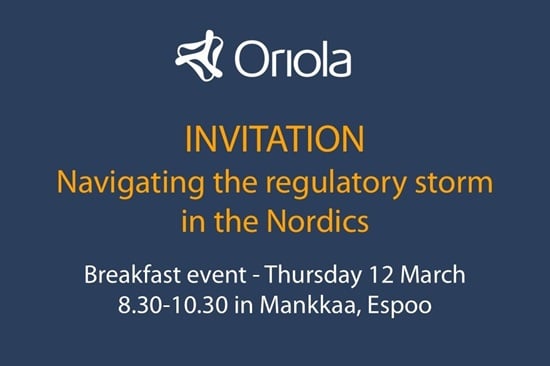Pharmaceutical companies´ important role in pharmacovigilance
22.1.2019
When a medicinal product is granted a marketing authorisation, its adverse event profile is based on adverse reactions reported in clinical studies. After the medicine has been introduced onto the market, the number of users increases and new rare adverse reactions may appear, or new unknown adverse reactions may occur. The frequency of known adverse reactions may also change. The goal of pharmacovigilance is to ensure the safe use of medicines throughout their whole life cycle. Safe use means that the benefits from the medicine are greater than its potential harmful effects.
Pharmacovigilance is carried out by several stakeholders, such as the European Medicines Agency (EMA), the national drug safety authorities of the EU member states, the European Commission, and the World Health Organization (WHO). Pharmaceutical companies are also heavily involved in promoting pharmacovigilance and patient safety. The statutory obligations of pharmaceutical companies include:
- monitoring the safety of medicinal products on the market throughout their whole life cycle
- taking any necessary steps if changes in the risk/benefit relationship of a medicine are detected
- submitting information on such changes to the supervisory authorities within the designated time limits
- notifying the authorities immediately of any emerging safety concern related to the risk/benefit relationship of a medicinal product
- collecting data on all medicinal products – even well-established ones – and their adverse reactions, as well as on user experiences of medicines.
Source: Pharmacovigilance Life Cycle, published by Pharma Industry Finland. 09/01/2019. https://www.pif.fi/sites/default/files/attachments/pharmacovigilance_life_cycle_2018.pdf
High-quality pharmacovigilance is essential to patient safety
Deficiencies detected in pharmacovigilance can have serious consequences for patient safety. To ensure patient safety, regulatory authorities, pharmaceutical companies, as well as companies offering pharmacovigilance services are obliged to have a quality system for pharmacovigilance, which is subject to regular internal and external auditing. The regulatory authorities also carry out inspections of pharmacovigilance services at pharmaceutical companies.
Oriola provides assistance with pharmacovigilance to pharmaceutical companies, ranging from project-based assignments to fully outsourced pharmacovigilance activities. The quality system of our pharmacovigilance services is based on requirements set for our customer companies by legislation, guidelines and various standards (such as ISO), and functions as an important criterion for pharmaceutical companies when choosing the service provider and monitoring the quality of the service.
“We want to offer our customers high-quality pharmacovigilance services. Regular audits are the key tool here, since they help us to make our quality system even better than before. We have received very positive feedback and recognition concerning our quality system in the audits performed by our customer companies”, says Päivi Ylä-Kotola, Head of Pharmacovigilance.


